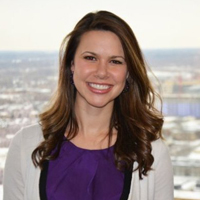What Would Milton Friedman Say: How to Keep “My Brother’s Keeper” from Failing
If President Obama wants to “empower boys and men of color,” he really should give school choice another look. If only the idea’s founder, Milton Friedman, were still alive to advise the president—one Nobel laureate to another—as he did previous officeholders of the White House. Heeding Milton’s advice could make the president’s proposal far more effective for minority children over the long term.
Earlier this year, the president announced “My Brother’s Keeper” to assist “a segment of our society (minority males) which too often faces disproportionate challenges and obstacles to success.” How true. The plan’s first step was to “work across executive departments and agencies to: Assess and suggest improvements to Federal policies, regulations, and programs that apply to boys and young men of color.”
But what then did President Obama do to two education programs in his own budget, both of which have served minority students very well? He zeroed out funding for one, and reduced support for the other. How is that in keeping with the first step in “My Brother’s Keeper”?
The first targeted program, the D.C. Opportunity Scholarship Program, has been an ongoing point of contention between the president and Congress. Since its enactment in 2004, low-income parents in Washington, D.C., have been able to receive vouchers worth just a fraction of the funding they would have received in public school to attend area private schools.
By being limited to just a percentage of D.C. students, that program is a watered-down version of Milton Friedman’s idea of “universal” school choice: Fund all students, not schools, and let their parents choose the environments that work best for them. But, even in the D.C. program’s tepid format, it is working.
In a randomized controlled analysis prompted by the U.S. Department of Education—the “gold standard” of social science research—D.C. students who won Opportunity Scholarships in a lottery and used those vouchers had a graduation rate 12 points higher than students who were offered vouchers but did not use them. Moreover, nearly 90 percent of voucher graduates enrolled in two- or four-year colleges.
Those outcomes are worth praising alone. But what makes them even better is most students enrolled in the D.C. Opportunity Scholarship Program are minority—98 percent to be exact. For President Obama, that program should be a “keeper.”
As Milton noted, better schools are the key to improved economic opportunity, especially for minority children. A one-size-fits-all public school system, combined with the requirement to pay school taxes plus tuition to opt out of the assigned public school, disproportionately adversely effects the economically disadvantaged.
Poll after poll shows minority families favor private alternatives to assigned public schools. Sadly, it is a plan President Obama consistently opposes.
A similar policy rooted in Milton Friedman’s idea of school choice is a charter school, a public school freed of many cumbersome state and federal regulations in exchange for stronger oversight by an independent board of directors and authors. Such autonomy from the government, but stronger local control, gives charter educators the freedom to meet their students’ diverse and unique needs.
To his credit, President Obama has supported charter schools in the past. Unfortunately, his same budget that zeroes out funding for D.C.’s vouchers also proposes a 16 percent cut in charter spending. Charters don’t need less funding; they need equal funding with traditional public schools.
The demographic breakdown in charter schools is similar to that of public schools. Many charter schools also are performing well (and, when they’re not, they close—a critical trait of charter schools). And because charter schools can be specially tailored to students’ and communities’ needs, a number of schools have sprung up that specifically serve at-risk male youth—including a campus of schools in President Obama’s own backyard.
But instead of vigorously advancing proven education policies, the president is pushing a minimum-wage plan that one of Milton Friedman’s own students—Dr. Thomas Sowell—says will actually do more harm to minority youngsters:
If there is one thing that people all across the ideological spectrum should be able to agree on, it is that better education is desperately needed by black youngsters, especially in the ghettoes. For most, it is their one chance for a better life.
Among the few bright spots in a generally dismal picture of the education of black students are those successful charter schools or voucher schools to which many black parents try to get their children admitted. Some of these schools have not only reached but exceeded national norms, even when located in neighborhoods where the regular public schools lag far behind.
“My Brother’s Keeper” has a worthy and much-needed goal: improve outcomes for minority males. There are policies that can accomplish that, and President Obama should pursue them. If the president needs evidence on why that pursuit is worthwhile, he should meet with the minority families in Washington, D.C. using these programs. If he were alive today, that is probably “What Milton Friedman Would Say” to do.





